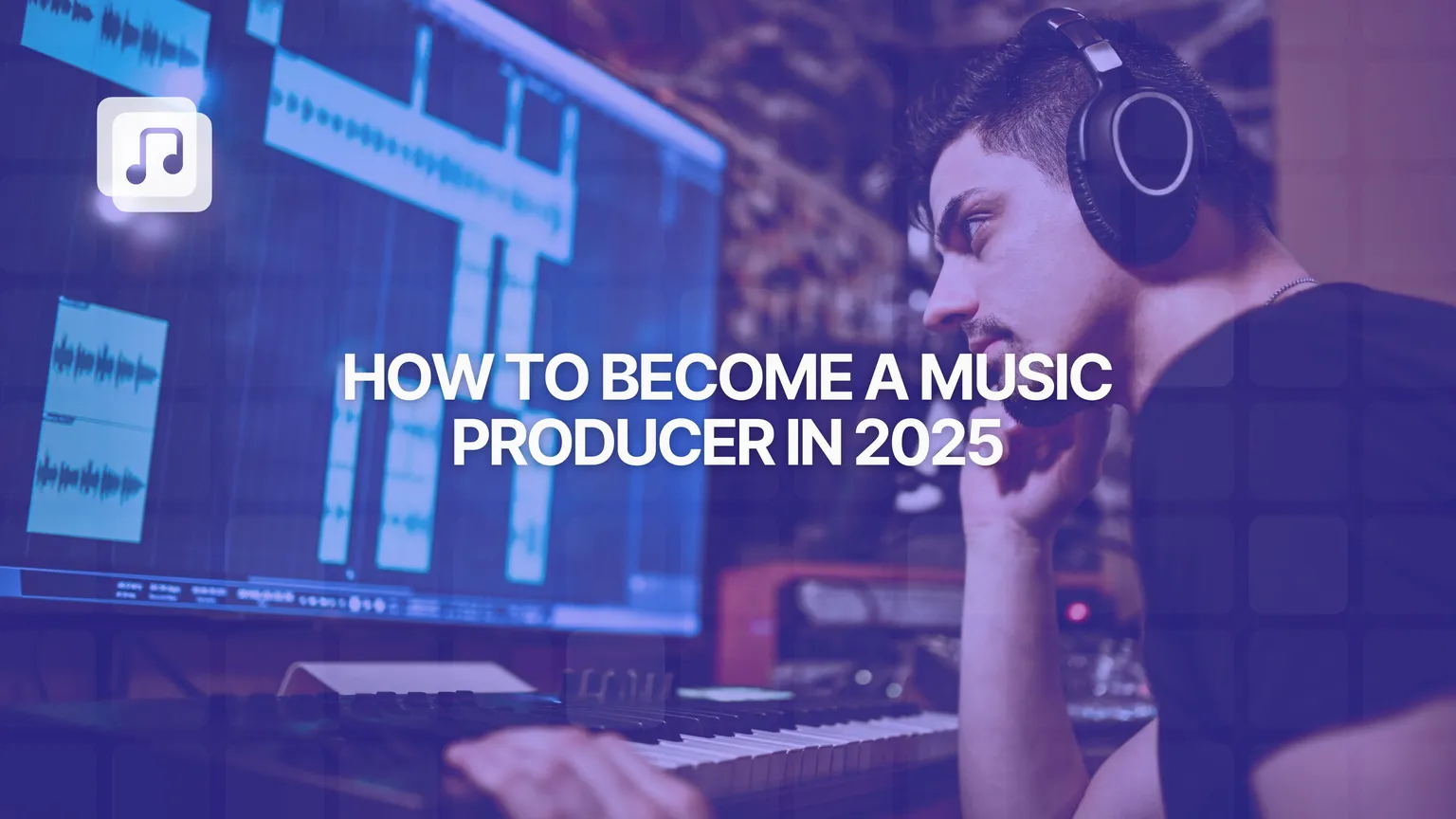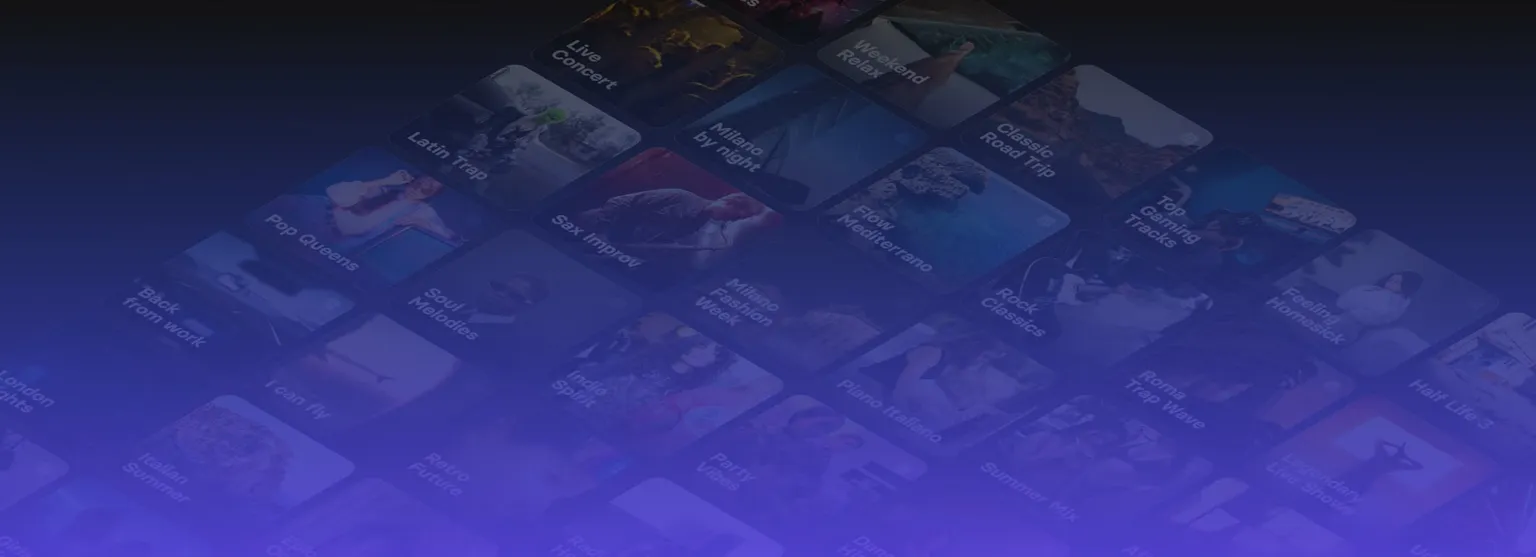
The world of music production is exciting, fast-paced, and constantly evolving. With the rise of digital technology, more and more people dream of turning their love for music into a real career. But what does it actually take to become a music producer? What skills do you need, what equipment is essential, and what are the steps to build a solid path in this field?
In this comprehensive guide, we’ll cover all the key aspects of becoming a music producer: from gear and techniques to mindset and career development.
Here's what we're going to talk about:
- What does a music producer do?
- The creative process
- Essential equipment to start producing music
- Home setup
- Tips to improve your production skills
What does a music producer do?
A music producer plays a central role in the creative process behind a song. Their responsibilities range from shaping the overall sound to managing technical and artistic aspects of a track. In essence, a producer takes a raw musical idea and transforms it into a fully structured, recorded, mixed and mastered song. This requires a mix of creative vision, technical skills and good communication.

The creative process: from writing to mastering
1. Songwriting and composition
Every great track starts with an idea. It might be a melody on a keyboard, a beat you laid down on your DAW, or lyrics that came to you in a moment of inspiration. At this stage, producers may collaborate with singers, instrumentalists or songwriters to build the foundation of the song. It’s important to think about structure (verse, chorus, bridge) and begin imagining the arrangement.
2. Recording
Once the core idea is developed, it’s time to record the parts. Thanks to modern technology, you can record vocals, instruments, and samples at home. Capturing high-quality raw material is crucial for a professional-sounding track, so even if you're working in a home studio, your gear and recording techniques matter.

3. Editing
This is where you clean up the recordings—tighten up the timing, fix small mistakes, adjust levels, and apply basic effects. Editing is a detailed and often time-consuming phase, but it brings cohesion and clarity to your track. You’ll use tools like EQ, compression, reverb and delay to shape each element.
4. Mixing
Mixing is the art of balancing all the elements of a track. Here, you blend vocals, instruments, beats, and effects into a cohesive soundscape. A good mix enhances clarity, space, and energy in the music. It requires a trained ear, quality monitoring equipment and experience with your DAW and plugins.
5. Mastering
Mastering is the final polish. It ensures your track has consistent loudness, sonic balance and clarity across all playback systems, streaming platforms, headphones, radios, etc. Whether you do it yourself or use AI-based mastering tools, this step gives your music that professional edge.
Essential equipment to start producing music
You don’t need a million-dollar studio to begin producing. Start small but with the right tools. Here’s what you’ll need:
- Computer: This is the heart of your setup. A modern laptop or desktop with at least 8GB RAM and a fast processor will be sufficient for most projects.
- Digital Audio Workstation (DAW): This is your main production software. Popular choices include Ableton Live, FL Studio, Logic Pro X, and Cubase. Free options like Cakewalk or Tracktion are great for beginners.
- Audio Interface: This connects your mic and instruments to the computer and improves sound quality in and out.
- Condenser Microphone: Ideal for recording vocals and acoustic instruments with clarity and detail.
- Studio Headphones: Essential for accurate sound monitoring, especially if you’re working without studio monitors.
- MIDI Keyboard: Makes composing melodies and programming beats much easier and more intuitive.

How to set up a home studio
You don’t need a large space to get started. A small, well-organized room can work just fine. Acoustic treatment is key—use foam panels or bass traps to control reflections and improve your listening environment. Even how you place your desk and speakers can make a big difference. Avoid placing your setup right against walls, and keep surfaces clear to minimize unwanted reflections.
Tips to improve your production skills
Becoming a skilled music producer takes time and consistent effort. Here are a few practical tips to help you improve:
- Listen actively: Study tracks from your favorite genres. Pay attention to the mix, the arrangement, and how different sounds are layered.
- Develop your signature sound: Inspiration is good, but aim to create something original that reflects your personal style.
- Seek feedback: Share your tracks with other musicians or producers. A fresh set of ears can reveal things you might have missed.
- Learn constantly: There are tons of free resources online—YouTube tutorials, courses, forums. Use them to build your skills.
- Don’t chase perfection: Every producer starts with rough projects. The key is to keep creating, experimenting, and learning from each track.
Once you’ve produced your track correctly and professionally, it’s time to distribute your music effectively. That’s why Matchfy offers its own distribution service designed to support all musicians. With our service, you’ll keep 95% of your royalties, allowing you to retain most of your earnings, while distributing your music across all major platforms: Spotify, Apple Music, Deezer, and many more!

Starting your career as a producer
Becoming a music producer is an exciting journey that combines creativity, technical knowledge, and persistence. From crafting a musical idea and building a home studio to learning the intricacies of mixing and mastering, every step you take sharpens your skills and brings you closer to your goals. But producing a great track is only half the battle, getting your music heard is just as important.
That’s where Matchfy comes in. As a platform dedicated to helping artists grow, Matchfy doesn’t just offer a powerful music distribution service that lets you keep 95% of your royalties—it also connects you with tools and strategies to promote your tracks effectively. Whether you’re just starting out or looking to level up your career, Matchfy supports you every step of the way, making sure your music reaches the audience it deserves.
Turn your passion into a profession: produce, distribute, and promote your music with confidence.

